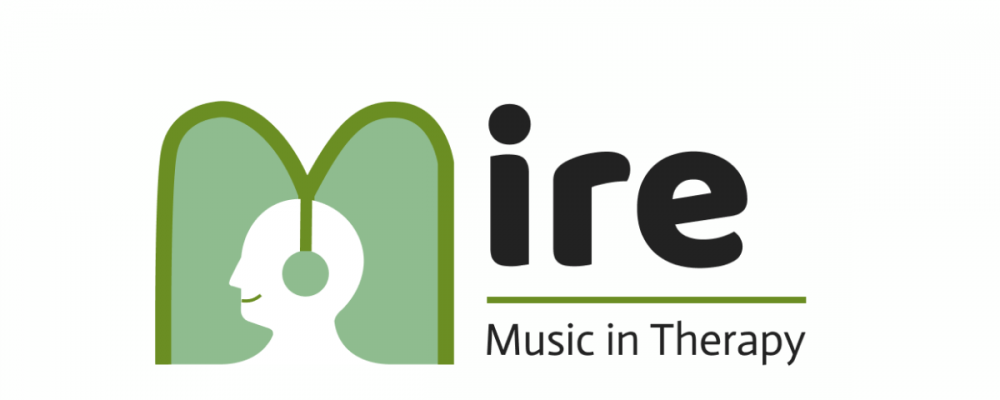For centuries, people have turned to music for healing. In ancient Greece, physicians played flutes, lyres, and zithers to promote recovery (Meymandi, 2009). In the 20th century, this practice evolved into the discipline of music therapy (Music Therapy Association, 2025), now widely used across therapeutic contexts.
At ICEP Europe, our research team is part of the Erasmus+-funded Music Imagery for Resilience and Emotional Regulation (MIRE) project. Over the past year, we have worked with partners in Greece (SONORA – A Multidisciplinary Organisation for Music Therapy and Research) and Latvia (Latvian Association for Perinatal Development) to train mental health professionals—including psychologists, therapists, counsellors, and psychiatric nurses—in the fundamentals of the Music Imagery (MI) method.
What is the Music Imagery method?
The Music Imagery method is a receptive music therapy technique shown to be especially effective in supporting clients living with trauma (Rudstam, 2023; Story & Beck, 2017).
Unlike active approaches, receptive music therapy focuses on listening to music to induce relaxation. MI-trained therapists guide clients to hold soothing mental images, helping regulate trauma-related stress responses. Afterwards, clients reflect on the experience, either verbally or through creative expression (Short, 2016).
Research highlights several benefits of music imagery therapy:
Resilience & emotional regulation: MI supports client well-being, strengthening resilience and emotional regulation across both physical and mental health challenges (Jerling & Heyns, 2020).
Supporting healing: Mental images created in therapy can be revisited outside sessions, helping with comfort, sleep, and pain management (Nooner et al., 2016).
Facilitating traditional therapy: MI engages clients who struggle with talk therapy, such as those experiencing dissociation or freezing (Rudstam et al., 2017).
Together with our partners, ICEP Europe has facilitated MI training for more than 70 mental health professionals in Ireland, Greece, and Latvia—impacting around 300 clients living with trauma.
What are MIRE participants saying?
As the project reaches its final stage, we are gathering feedback from participants. So far, the results have been highly positive:
91.4% were very satisfied with the training.
67.1% felt significantly more confident supporting vulnerable clients after training; 28.6% felt somewhat more confident.
Focus groups revealed improved skills in rapport building, helping clients relax, and uncovering repressed emotions.
Participants valued the experimental element of the training, preparing them for practical application.
99% would recommend the training to a colleague.
Participants also completed case study reports applying MI with clients over six sessions.
Concluding thoughts
Free, accessible, and diverse learning opportunities are vital for mental health professionals. The MIRE project supports this mission by equipping practitioners with tools to apply music imagery therapy in trauma recovery—helping build a resilient and informed mental health workforce in Europe.
What’s next?
Last month, we were proud to co-host the MIRE Online Conference, marking the conclusion of the Erasmus+-funded Music Imagery for Resilience and Emotional Regulation (MIRE) project.
The event brought together project leaders, instructors, and trainees to share:
🔹 Key findings and conclusions from the project
🔹 Insights from participant case studies
🔹 Best practices for using music and imagery with clients who have experienced trauma.
It was an inspiring way to reflect on what’s been achieved and to highlight how music and imagery can support healing and resilience.
If you missed it live? You can watch the full conference (including all presentations) here.
To find out more, contact our Senior Research Officer at a.szproch@icepe.eu.
Learn more about the MIRE project at www.mireproject.eu.
References
- Meymandi, A. (2009). Music, Medicine, Healing, and the Genome Project. Psychiatry, 6(9), 43-45. PMID: 19855860; PMCID: PMC2766288.
- Music Therapy Association. (Accessed August 20th, 2025). History of Music Therapy. https://www.musictherapy.org/about/history/
- Rudstam, G. (2023). Trauma-focused group music and imagery with women suffering from PTSD or CPTSD: a randomized controlled study.
- Story, K. M., & Beck, B. D. (2017). Guided Imagery and Music with female military veterans: An intervention development study. The Arts in Psychotherapy, 55, 93-102. https://doi.org/10.1016/j.aip.2017.05.003
- Short, A.E. (2016). Combining Music and Imagery in the Context of Medical Music Therapy. Music & Medicine, 8(2), 6-8. doi.:10.47513/mmd.v8i2.492
- Jerling, P., & Heyns, M. (2020). Exploring Guided Imagery and Music as a well-being intervention: A systematic literature review. Nordic Journal of Music Therapy, 29(4), 371-390. https://doi.org/10.1080/08098131.2020.1737185
- Nooner, A. K., Dwyer, K., DeShea, L., & Yeo, T. P. (2016). Using Relaxation and Guided Imagery to Address Pain, Fatigue, and Sleep Disturbances: A Pilot Study. Clinical Journal of Oncology Nursing, 20(5). doi.: 10.1188/16.CJON.547-552
- Rudstam, G., Elofsson, U. O., Søndergaard, H. P., Bonde, L. O., & Beck, B. D. (2017). Trauma-focused group music and imagery with women suffering from PTSD/complex PTSD: A feasibility study. Approaches: An Interdisciplinary Journal of Music Therapy, 9(2). https://doi.org/10.56883/aijmt.2017.287




